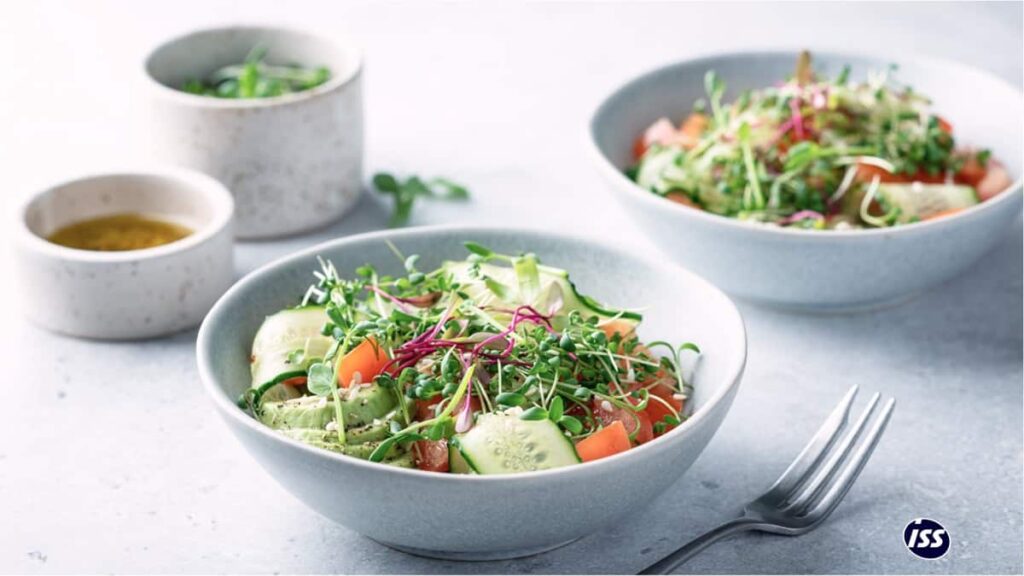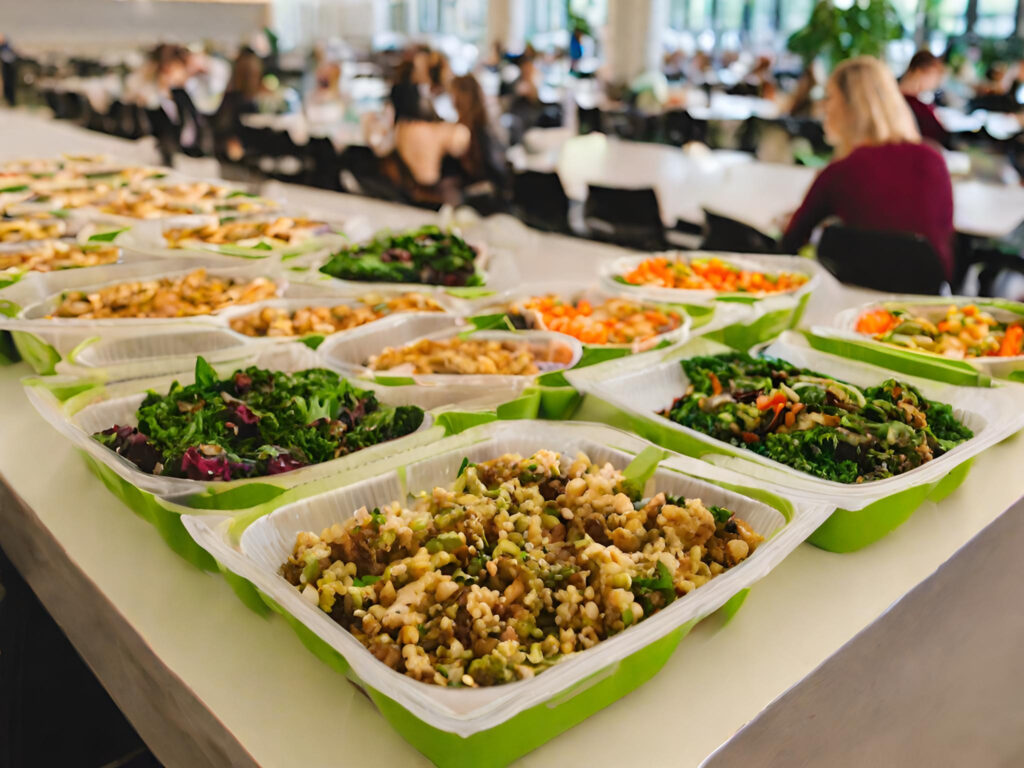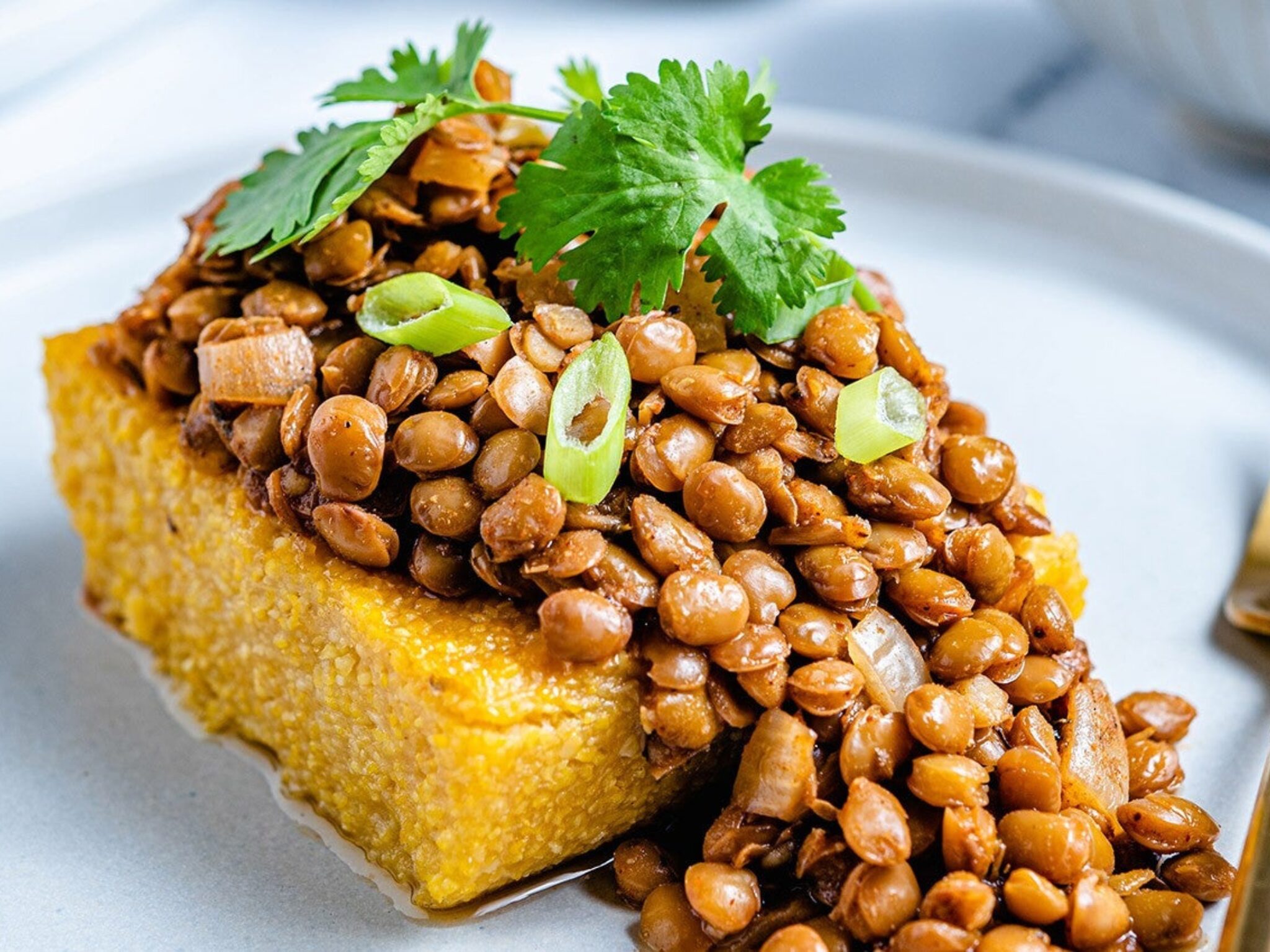Protein Sustainability Scorecard: Which Foodservice Companies Are the Most Planet-Friendly?
5 Mins Read
In the US, some caterers are ramping up their response to climate change, while others are employing greenwashing tactics – a new scorecard ranks the country’s foodservice sector on sustainability goals.
Is your caterer really sustainable, or is it all just a façade? It’s a question that the Humane Society of the United States (HSUS) contends with in its latest Protein Sustainability Scorecard, which ranks the efforts of foodservice companies to lower their impact on the environment and animals.
“The HSUS Protein Sustainability Scorecard was created to provide the public and customers with a hard look at what companies are actually doing to keep their promises,” said Kate Watts, director of foodservice innovation at HSUS.
The animal rights organisation surveyed 50 catering companies in the US about their purchasing and menu practices, gathering data about their sustainability goals and what they’re doing to meet these targets. The scorecard focused on three key metrics – transparency, goals, and a plan of action – and found that while some foodservice operators boast impressive climate strategies, they aren’t walking the talk and implementing any action.
The food system is responsible for a third of global greenhouse gas emissions, of which 60% is attributed to meat production. This is twice the amount of emissions associated with plant-based foods, and shifting to these is much more impactful than using ‘lower-carbon’ meat. In fact, HSUS notes that a transition to plant-derived food is the “most impactful way” food companies can lower their carbon footprint, water and land usage, prevent deforestation, preserve natural habitats, and improve food security.
This is perhaps why the companies receiving the highest scores are increasing their plant-based offerings and/or cutting their animal protein purchases. A few operators, however, don’t take the issue as seriously or prioritise it at all.
The sustainability winners

For the third year in a row, ISS Guckenheimer ranked top of the sustainability charts, with 51% of its meals being plant-based on average. The company plans to extend that to 55% by next year, and has an additional goal to reduce animal protein purchases by 2027, and cut GHG emissions by a quarter by 2030.
Guckenheimer has developed PowerPlant, a toolkit to help make plant-based foods its core menu element. Moreover, it completed a Virtual Culinary Workshop with HSUS, trialling at least four vegan menu options each week for five weeks, following which, chefs who completed the training became Plant-Based Ambassadors to educate future chefs in plant-based cuisine. It’s also part of the Beans is How coalition, which is aiming to double the global consumption of legumes by 2028.
Metz Culinary Management and Sodexo came joint second in the Protein Sustainability Scorecard. For the former, 31-35% of the dishes it serves are vegan, with the target of reaching 50% by 2025. Similarly, 26-30% of the meals served by the latter are plant-based, with a commitment to have 33% vegan menus by next year, and 50% on its US Campus segment and for its corporate dining service the Good Eating Company.
Next up is HSS, the only other caterer to receive an A+ on the scorecard. Like Sodexo, between 26% and 30% of all its meals are plant-based, with the goal of getting 50% of its retail menus to be vegan. Fresh Ideas (31-35% of vegan meals with a 50% target for 2025) and Elior (21-25% of plant-based dishes with commitments to increase to 30-50% across various segments) round out the top five with a ranking of A.
Creative Dining Services and Whitsons received B+ scores, while companies including Aramark, Epicurean and Southwest Foodservice Excellence earned a B.
The greenwashing losers

Compass Group, the world’s largest foodservice company, received a lowly C+, with the ratio of plant-based to total meals unknown (given it didn’t confirm the 31-35% figure reported). While applauding its marketing initiatives, HSUS said the catering giant refuses to set clear targets on shifting menu practices in line with its climate goals, and recommends it to be more transparent to avoid the appearance of greenwashing.
Fellow C+ graders Café Services and Food for Thought Enterprises receive similar advice. Meanwhile, companies including Pomptonian Food Service and Parkhurst Dining received a D+ score, and Imagine Culinary Group, Taher and HMSHost were among those who got a D.
The list of companies with an F grade was the longest, with 21 caterers failing to make sustainability efforts and being accused of greenwashing. This was largely because none of these companies submitted the reports requested by HSUS, which used publicly available information to compile their scores – these include Thompson Hospitality, Trinity Services Group, OrganicLife, Safe Dining Services, AVI Foodsystems, and Brock & Company.
To its credit, Healthcare Services Group (which also received an F), responded with interest in collaborating with HSUS this year to set and update its sustainability targets, which couldn’t be rolled out in time for this year’s survey.
“The HSUS Protein Sustainability Scorecard was created to provide the public and customers with a hard look at what companies are actually doing to keep their promises,” said Watts. HSUS recommended that all F graders update their websites for full transparency, and implement public and measurable plant-based goals and timelines.
“This scorecard shines a spotlight on the companies that are committed to real change and those that do not or choose to operate without transparency,” said Karla Dumas, a registered dietitian and vice president of farm animal protection at HSUS. “Coming from the industry myself, if I were hiring a food service caterer, I would be paying attention to this list.”



